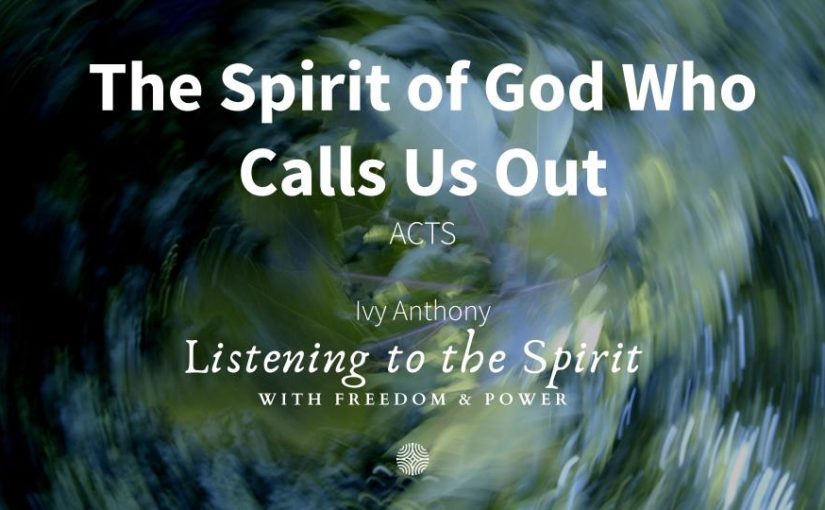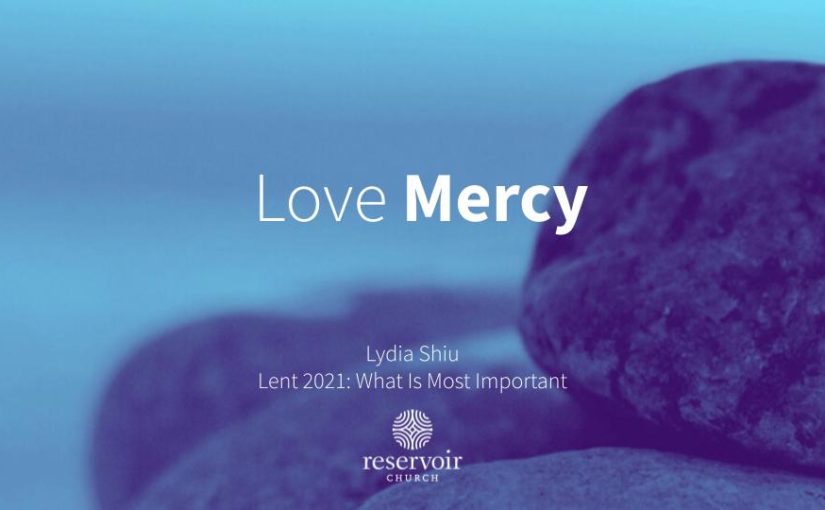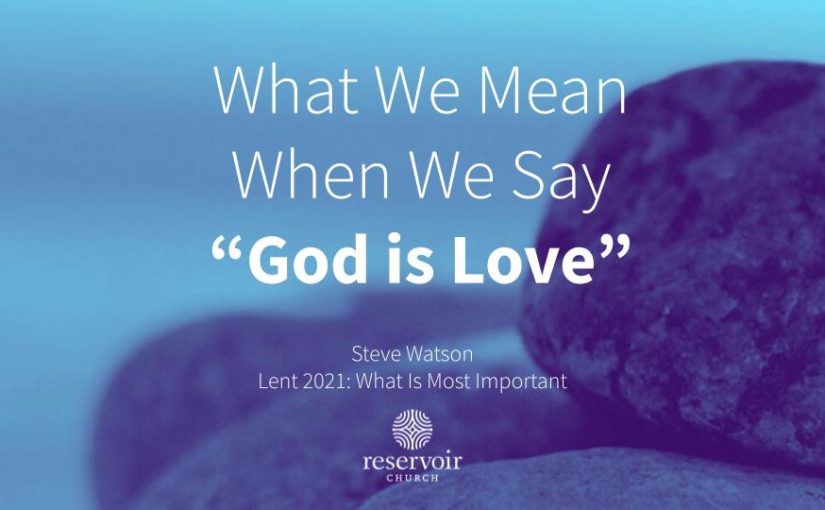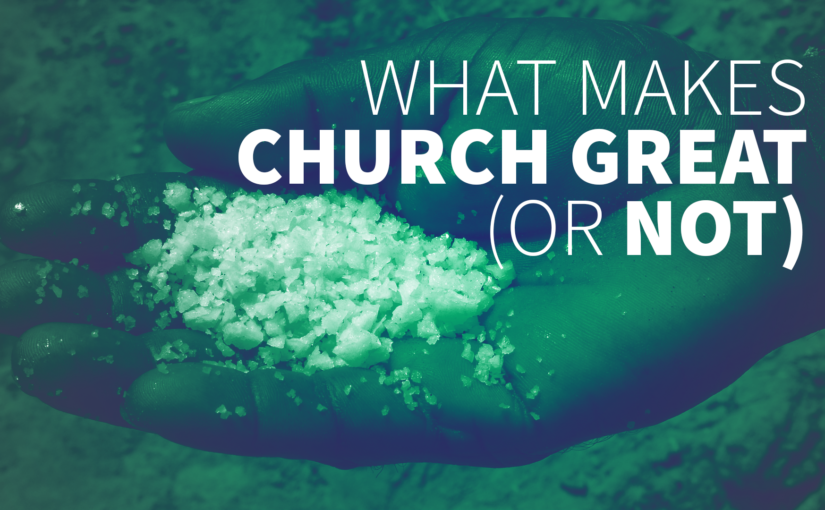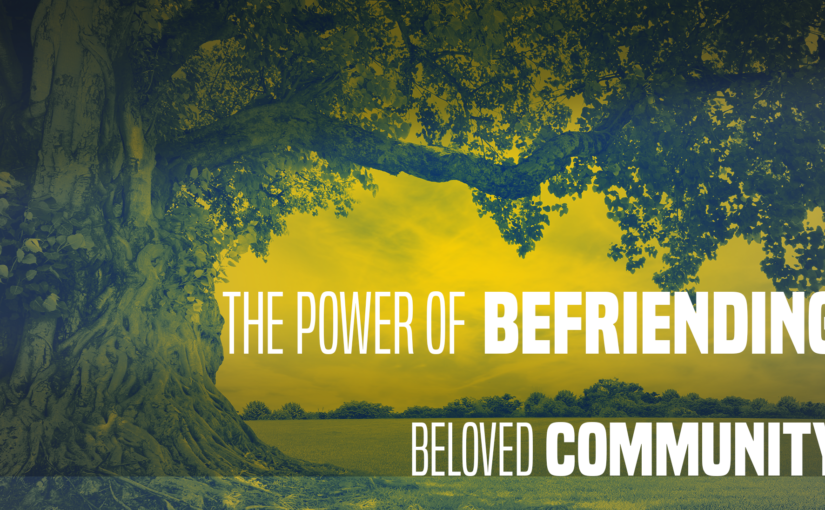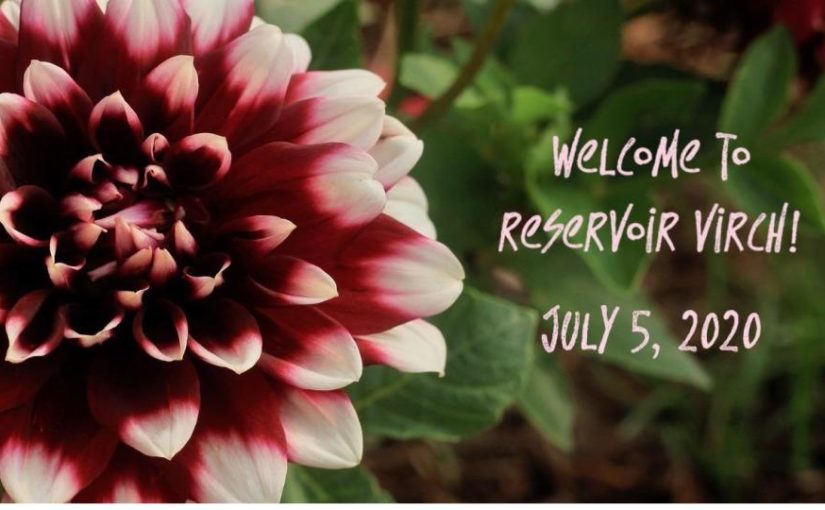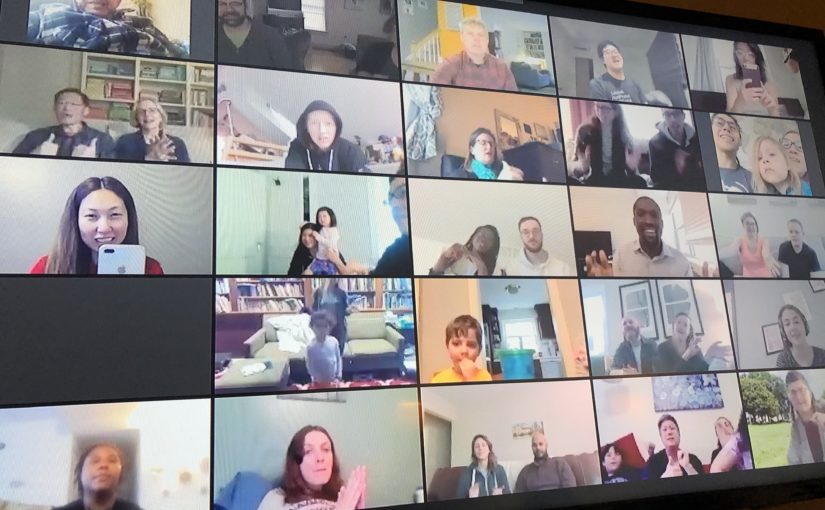For this week’s Events and Happenings, click “Download PDF.”
For this week’s Spiritual Practice, led by Trecia Reavis, click HERE. The images to accompany the Spiritual Practice are located in the PDF. .
Thank you Trecia. Namaste, namaste, namaste, may it be our guiding prayer as we walk, and breathe and have our being on this Earth.
If you missed the beginning of announcements – I just want to reiterate the Prayer Vigil for Hope and Healing coming up in 2 Sundays, on May 2nd.
Come with your prayer, come with your song. It will be a time to give space for the voices of Black, Indigenous, Asian American, and People of Color. All are welcome to attend and listen and stand in solidarity. Sign up if you’d like to register. Link in the chat – After registering, you will receive a confirmation email containing information about joining the meeting.
It is good to be with you today my friends. I’m Ivy – a Pastor here on staff. And I’m going to share some words around this new series we are in called, “Listening to the Spirit of God, with Freedom and Power.” It is an invitation to both chronologically follow the events of early followers of Jesus and how they found their way with the Spirit of God, in post-resurrection days – that were bewildering and confusing and laced with fear! And it’s also an invitation for us to consider what we think of the Spirit of God IN these days. As Trecia led us through those images – maybe you felt those questions rise in you – where is the Spirit of God, where do I recognize it? What does it mean to listen to the Spirit? And what does that listening call us unto?
Our Lenten season centered the voices of the minor prophets and concluded with the promise of God, that we hear in the minor prophet of Joel –
I will pour out my spirit on all people
…not just kings, prophets and judges (people that had status and power and “religious” value), but poured out on all people.
Today, this is the phrase I want to invite us to deeply mine, to revisit with fresh awareness.
I will pour out my spirit on all people
Because not only is this vital to our own experience of flourishing and wellness – especially in days of chaos and hurt (when only dead-ends appear on our horizon), and not only is it essential in piercing through our boundaries and limits of what and who God is, BUT it is also vital for our conceptions of what the “gospel” is, and who/what “church” is, as we revisit this promise.
Today we’ll look at words shared to us in the book of Acts, particularly those of Stephen. A voice that echoes around us, with the Spirit of God – just as strong today. A voice that if we still/quiet ourselves long enough to listen, may just help us believe the RESURRECTION STORY is an everyday possibility – not just an Easter story. That death and violence and hatred will not be the message that wins out , the one that soaks into our veins and into our next generations, but it will be a message of LIFE and Love that we create with the Spirit of God that wins out. Where the “gospel” and “church” represent the Spirit of God. Because the spirit of God, CALLS US OUT into liberation and new ways of living alongside one another – calling us into Beloved Community – which will take more than our human imaginations, it will take the power, inspiration and courage of the spirit of God.
PRAYER
Oh Holy, tender one.
In faith, this morning we ask for your presence.
Aliven us, freshen us, tune us to your movement.
Within us… in the midst of us.. and beyond us.
Amen
MY STORY
Three years ago at this time of year – I took a trip to Duke University for a several day conference. The conference itself took place in Duke’s Chapel, this outstandingly gorgeous building, right in the center of campus. Actually it’s the tallest, most prominent university chapel in the world. The first session of the first day – started with a woman leading us in song. I don’t even remember the song or the words, I just remember her singular voice starting us off. No instruments – just her voice echoing off these ancient stone walls, and traveling up to the cavernous ceiling and reverberating back down – it was stunning. And in a room of 1,000 or so strangers, it was uniting and the holiness. The Spirit of God. I felt it – reverberated through all of us.
Over the course of the next few days all of our sessions were centered in this sanctuary. All the big speakers and all the great worship happened in this gorgeous building. Except for this one opportunity where you could choose from a myriad of different breakout options. One of them was off-campus, which required taking a bus a few miles away in Durham, and visiting this property that was 1) a school – called the “School for Conversion, ” 2) a church, St. John’s Missionary Baptist Church, and also 3) a declared “Sanctuary” for a member of the neighborhood – Jose Chicas who was being faced with the risk of deportation – due to increased ICE raids in the area. He had been living there for a year at that point..
We would be able to meet one of the representatives of all of this – a guy by the name of Jonathan Wilson-Hartgrove
A LOT going on there – and I wanted to hear & see more about what all of this was.
A church, a school, a neighborhood, “Sanctuary”, community? What was the vision in all of this? The plan? The thru-line? The Program?
And also as you might guess, I was a little suspect of this word “conversion.”
“Conversion” has been a word that was often synonymous with the word “gospel” in my faith background. I held the “gospel”/the power – to “convert” others – which then gave them this separate/”holier” status.
“Conversion” though, in its truest form, is a new way of being. And actually an on-going, ever-evolving way of being as we think of it situated in a faith context, with a living, resurrected God. IN YOUR FULL LIFE. “Conversion” is a transformation of heart – and it is an active process that follows the movement of the SPIRIT OF GOD – that is not always visible or defined (as in a prominent tall building), but one that unmistakably introduces us into new patterns, spheres, people. And as Stephen shows us in the book of Acts – this newness and expanse – is not always embraced or accepted by those in power.
So let’s press into Stephen’s story a little bit here – we meet Stephen in chapter 6 of Acts where he is chosen to help with the daily distribution of food to widows who were being discriminated against – and we see here, that he is described as one who is
full of faith and the Holy Spirit
and is one who performs many amazing signs and miracles. This gains the attention of the religious elite – and they behold Stephen as a threat to their position and way of understanding God.
So they persuaded some men to lie about Stephen saying,
“This man is always speaking against the Temple and against the law of Moses. We have heard him say that this Jesus of Nazareth will destroy the Temple and change the customs Moses handed down to us.”
And so they arrested him and brought him before the RELIGIOUS COUNCIL.
These accusations are a big deal. Stephen knows that to continue to live in the Spirit – presses against the honoring of hierarchies of religious authorities. HE is transgressing the borders – closing the distance between insider and outsider.. Neighbor and foreigner… friend and stranger. Suggesting that the Spirit of God sees no boundaries.
So Stephen responds to the council – and it’s about 50 verses in Chapter 7 of Acts – I won’t read them all – but it is very powerful, so I’ll summarize a bit,
The interesting thing about his response to the council – is that he doesn’t start with a list of retorts for each point he’s been accused of .
Instead he decides to remind this religious council of the movement of the Spirit of God – to all of God’s people over the history of time.
He starts way back with Abraham.
He details the movement of God throughout lands – out of Egypt, through the Red Sea and back and forth through the wilderness. The widening circles and borders and cultures that God embraces.
He reminds the council of God’s promises that have occurred throughout history – and how God came through on those promises.
He reminds the council of the Spirit of God’s bewildering ways – of how God created a whole nation from Abraham and his descendants even though there were no children yet.
He reminds the council of Jacob and Isaac and Joseph, and Moses – who are pivotal characters in the religious elite’s present day understanding of God.
He reminds them of the spirit of God speaking through people, and bushes, and angels and fire – occurring in curious ways – but ALWAYS present.
The Spirit of God always present – he also reminds the council (in this historical recollection), that at EVERY turn the Spirit of God has been rejected, forgotten, and disbelieved by the ‘people of God’ – again and again – throughout history.
Stephen’s address ends with these powerful words (picking up at the end of Acts 7):
Acts 7: 45-51
45 Years later, when Joshua led our ancestors in battle against the nations that God drove out of this land, the Tabernacle was taken with them into their new territory. And it stayed there until the time of King David.
46 “David found favor with God and asked for the privilege of building a permanent Temple for the God of Jacob.
47 But it was Solomon who actually built it.
48 However, the Most High doesn’t live in temples made by human hands.
As the prophet Isaiah says,
49 ‘Heaven is my throne,
and the earth is my footstool.
Could you build me a temple as good as that?’
asks the Lord.
‘Could you build me such a resting place?
50 Didn’t my hands make both heaven and earth?’
51 “You stubborn people! You are heathen at heart and deaf to the truth. Must you forever resist the Holy Spirit?
Stephen ends here with the words of the prophet Isaiah. Challenging them to consider these words of God,
“Didn’t my hands make both heaven and earth?” “Oh religious council – can you understand that God’s presence has been and will always be present everywhere? Covering heaven and earth?” “Do you see that *your God* is the same God of Abraham?
And like Joel’s words,
“I pour out my spirit on all people.”
Can you see that
“I, Stephen have the same spirit of God in me – that is present in you?”
Stephen shows and calls out, in the same way that prophets do, big patterns. They are seers of big patterns. They see what has always been true – and will forever be true of God. Recognizing that one of the big patterns of God – as Stephen recollects through history – is that God’s message of love and spirit – always gets wider and more universal, that God is IN all things.
It’s profound, because Stephen is showing here (to the council that is accusing him and will shortly murder him through stoning) that the very truths they speak of – and are so vehemently protecting and guarding – the “good news”, that speaks of the incredible power and goodness of God for ALL PEOPLE – is being warped and turned into “bad news” as they use it against the people in their midst.
And herein Stephen not only reveals a big pattern of God – but he also reveals one of the biggest patterns of humanity -our continued effort to limit the Spirit of God. Discredit the Spirit of God. Cover our ears and not listen to the Spirit of God. Especially as we seek to retain comfort, power, and status.
The pattern over history is that we (the bearers of God’s image and Spirit – are the destructive forces that hijack the gospel) resisting it
“by believing that faith is our business to manage, our tool to use on other people or society.”
This is why it is so important to figure out where you are, where we are, I am with the Spirit of God today. Because the Spirit of God calls us out – to continue the good work of reconstructing the gospel – to keep “converting”/transforming to new ways of being in beloved community with one another.
The council before Stephen couldn’t listen to the truth that Stephen – by way of the Spirit of God revealed in his speech … so much so that it says in verse 57, that they
Acts 7:57
“put their hands over their ears, and drowning out his voice with their own shouts they rushed him, dragged him out of the city and stoned him.”
HANDFULS of STONE and HANDFULS of CERTAINTY.
As suspect as I was getting off the bus and walking a few blocks over to this “School for Conversion” – I warmed to Jonathan Wilson-Hartgrove as I listened to him speak of “church” as in the Greek of the New Testament, “ekklesia – translated as “the called-out ones.” Which he said is to be called out of the patterns and practices of this world’s sinful and broken systems into the economy of God’s abundance and grace which is enough for everyone – this he said, is to be church.
To participate in an institution called church that reinforces this world’s broken systems is easy. But to live by the spirit, is messier – because it requires that which we can not fully know – the person in front of us – and the only bridge to knowing is “love.”
As Jesus says in his first sermon,
“The Spirit of the Lord is on me, because the Spirit has anointed me to proclaim good news to the poor”
This is the gospel. To challenge the injustice of poverty – those who have been made poor, kept poor, by unjust systems.
And what if this first sermon was an invitation – not to create or imagine a bunch of auxiliary ministries, dependent on the central mission of “church building/entity” – but what if it was a “calling out” of the Spirit of God? As a way of living with love, in this world, and fighting everything that comes against that love, by the power of the Spirit?
To walk by the power of the Spirit in an unpredictable world, is one that liberates us from the most powerful authoritative/hierarchical institutions and systems that lay in our land.
This freedom is what the COUNCIL didn’t like. Stephen was living alongside people. MORE THAN HE WAS IN THE TEMPLE, he was being the gospel, more than he was studying the mosaic laws, he was walking alongside, sharing his food with those who had been abandoned and cast aside – widows. Yet what was the shape of this? What was the plan? The spelled out vision? The structure? How could they know if it was really of God or not?
They couldn’t.
It was too unpredictable. Too mysterious, one might say, even miraculous.
And herein lies the miracles we get to encounter with the Spirit of God. The miracle is that the Spirit of God can be found, in backyards and at playgrounds, and in neighborhoods and in offices. In you, and in me, and in all of us. IF, as Trecia invited us to consider, “we choose to recognize it.” God is IN ALL THINGS. God is in all things.
Our days are over-flowing with miracles.
What I discovered as I learned more about Jonathan Wilson-Hartgrove’s work (which by the way was by standing in the parking lot of this property because it really wasn’t as much about the building or what goes on inside the building as a school/ or as a church/ or as “sanctuary”) it was more about the way of life that was found as he engaged with his community, neighborhood – as he was part of the area that surrounds him. This has led to meaningful partnerships with so many folks in his area – including Reverend William J. Barber (who created the Poor People’s Campaign of Moral revival – which takes up the unfinished work of the Poor People’s Campaign of 1967-1968 by Martin Luther King Jr.).
It’s led to Jose Chicas being free to reunite with his family – after 1300 days in sanctuary.
It’s led to this “School for Conversion” being shaped by God’s vision of a Beloved Community.
It’s led to the embodiment of “conversion” not being a separate set of doctrines that people have to subscribe to – but a WAY OF LIFE – that leads us ALL toward beloved community – a new way of living together and being in the world.
And it’s led the church to be not primarily about how many people show up for services, but rather about how many who are oppressed will encounter liberation. It’s about how many neighborhoods and families and individuals can be freed by the oppressive structures that continually try to limit life. And limit the Spirit of God.
And here we are today. The church, in this post, resurrection reality, just 2 weeks out from celebrating Easter, declaring that CHRIST is RISEN, CHRIST is HERE, CHRIST IS ALIVE. And our hearts are burning within us, with this awareness and hope. And yet we start this week, again, with death. Another murder of a black man at the hands of police. Daunte Wright, a 20 year old, a bearer of the image of God. Full of joy, given to laughter, a doting father, full of life, full of the Spirit of God. We would do well, to listen to the Spirit of God. We would do well to listen to the question that Daunte asks of us in his death, “Do you recognize the Spirit of God in me?”
Stephen says,
“the most High doesn’t live in temples made by human hands”
It’s us.
We are the temples. We are the living-breathing sanctuaries – filled with the Spirit of God. Capable of miracles, capable of loving those around us – yet Stephen poses piercing questions – will we listen to the Spirit? Or will we be a stubborn people? Heathen at heart and deaf to the truth? Or will we be able in faith, to trust like Moses did? And in faith, suffer like Joseph did? And in faith, persevere like Abraham? Will we be able to push against the spirit of our times – power, violence – like Stephen did?
Howard Thurman says to,
“listen to the Spirit of God in our hearts – often CALLS US OUT to act AGAINST the spirit of our times – and often causes us to anticipate a spirit which is yet in the making…”
Stephen listened to the Spirit – that was “yet in the making.” And he invited this council of religious elite – to listen to the Spirit that was “yet in the making.” The free, powerful, unboundaried Spirit of God.
And in that he invited them to answer the same question Daunte Wright does of us today, one they couldn’t face and embody, one they covered their ears to, “Do you recognize the Spirit of God in me?”
God says in
Joel 2:12-13
12 “Turn to me now, while there is time.
Give me your hearts.
Come with fasting, weeping, and mourning.
13 Don’t tear your clothing in your grief,
but tear your hearts instead.”
Return to the Lord your God,
for God is merciful and compassionate.
May we return. Return to the good, loving, powerful story of God in our lives – that has been written over the arch of history – so that we can write it into the future. And so that our efforts to rid this world’s systems of racism and every other sickening toxin are freed from white supremacy – addressing our hearts, our souls in the light of God’s mercy and compassion.
So that we can greet one another with Namaste. With reverence, with honor.
May the spirit of God in me – greet the spirit of God in you.
May we see and behold one another – as holy sanctuaries.
May we continue to become the church – embody the Spirit of God – that “calls us out.”
Amen –


